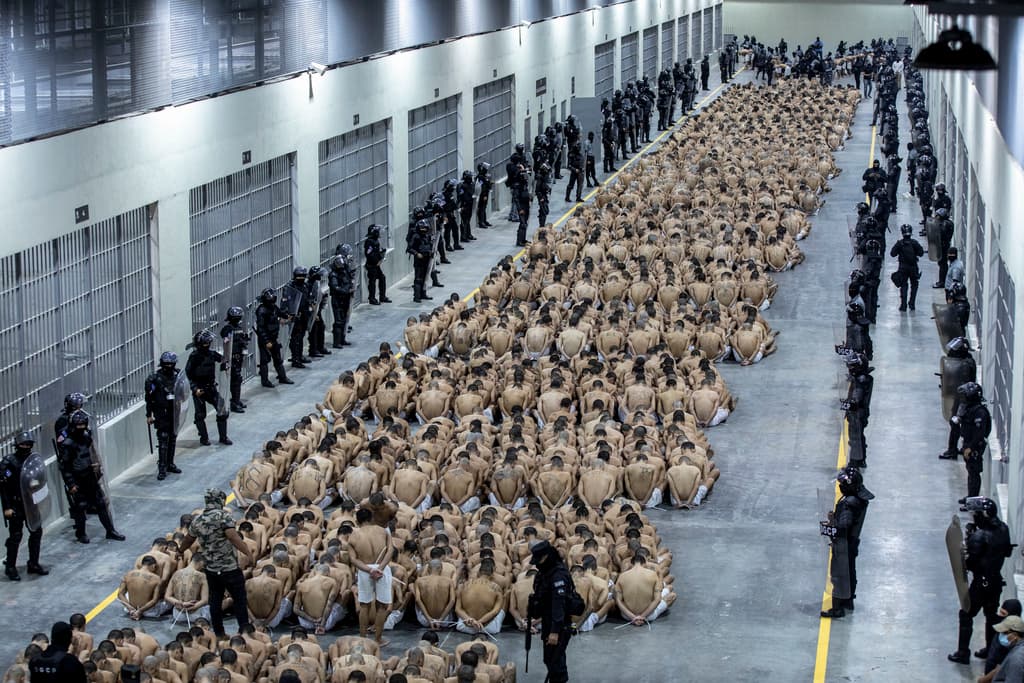El Salvador’s Hardline President Manages to Do the Unthinkable: Wipe Out Country’s Rampant Gang Violence
Officials from other Latin American countries have voiced their intentions to imitate Mr. Bukele’s anti-crime measures.

Initially criticized as inhumane, the hard-line crime-fighting policies enacted by the president of El Salvador, Nayib Bukele, are now being applauded across Latin America and returning a semblance of law and order to a country once plagued by some of the worst gang violence in the world.
“We close May 10, 2023, with zero homicides nationwide,” Mr. Bukele wrote on his Twitter account last week. “With this, it’s 365 days without homicides, a whole year.”
His claim to have completely eradicated homicide nationwide is disputed by critics. Yet, even they acknowledge that after having some of the highest murder rates in the world, El Salvador now has one of the lowest crime rates in Latin America.
Salvadorans feel the change on the streets, a director of the University of Don Bosco’s prevention of youth violence program in Soyapango, El Salvador, Juan Carlos Torres, tells the Sun. People prefer to have policemen or officials intercept them in the street to ask for documentation than to have a gang member threatening them, Mr. Torres adds.
Gangs had a large presence and controlled vast territory in the country. Citizens were scared to even walk the streets in some places, Mr. Torres says. Mr. Bukele’s new strategies “brought relief to the people in El Salvador,” he says.
Yet, Mr. Torres adds, the information provided by the government regarding zero homicides is omitting all homicides that were not committed by gangs. “They declared war on the gangs,” Mr. Torres says. “So what is being counted in that figure is homicides of gang members” only.
On March 27, 2022, following two days in which nearly 100 people died in El Salvador from gang violence, Mr. Bukele announced a state of emergency and deployed thousands of soldiers throughout the country to arrest gang members.
A video Mr. Bukele shared in February depicts 2,000 gang members being transported to the prison built by the administration, the Terrorism Confinement Center. El Salvador’s government says it is the Americas’ largest prison. “This will be their new house, where they will live for decades, mixed up, unable to do any more harm to the population,” Mr. Bukele said.
El Salvador had one of the highest homicide rates in the hemisphere outside of war zones for years. The two gang groups taking over the country’s neighborhoods were Barrio 18, or Street 18, and MS-13. Barrio 18 was founded in Los Angeles, California and made its way down to Central America by recruiting immigrants.
Mr. Bukele’s approach to crime helped him maintain a national approval rate of over 75 percent since taking office in 2019. That support is higher than any recent Salvadoran president, according to local media. Now, according to the latest survey by LPG Datos, released in March 2023, Mr. Bukele’s approval rate has risen to 91 percent.
In addition, 88 percent of Salvadorans say gang crime has decreased since the measures were established, according to a survey released by the University Institute of Public Opinion. About 76 percent say they feel safe, as opposed to 11 percent who say they don’t.
About 68,000 gang members have been arrested since Mr. Bukele announced his campaign against crime, local media report. Videos of gang members in handcuffs, walking with their bodies bent over, flooded social media accounts worldwide. Images of inmates stacked closely together, sitting with their legs on each side of the man in front of them also sent shockwaves around the world.
Officials from other Latin American countries have voiced their intentions to imitate Mr. Bukele’s anti-crime measures. A candidate in Argentina’s upcoming presidential election, Santiago Cuneo, vowed to follow Mr. Bukele’s steps if elected. The mayor of Lima, Peru, Rafael Lopez Aliaga, sent a letter to his minister of defense in April, requesting the presence of the army on the streets, praising Mr. Bukele’s approach.
Mr. Bukele’s measures have their critics as well. Human rights groups claim he unlawfully detains people without complying with legal requirements. “Some of the arrests were based solely on individuals having tattoos, or a prior criminal record, or the fact that they were living in an area controlled by a gang,” a report by Amnesty International says.
The human rights group also condemns the conditions in which gang members are imprisoned. By the end of 2022, about 94,000 prisoners were detained even though El Salvador’s prisons are designed to hold no more than 30,864 inmates, according to Amnesty International. Food and basic hygiene supply shortages, prison guards mistreatment of inmates, and torture by gang members are some of the things Amnesty International has complained about.
In an interview with Le Monde, Vice President Ulloa of El Salvador said that abuse reports are being investigated and that innocent people arrested are being released. “It’s natural that there’s a margin of error, and this must be corrected,” he said.

